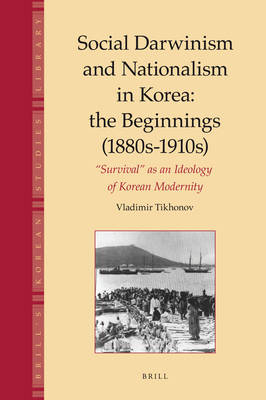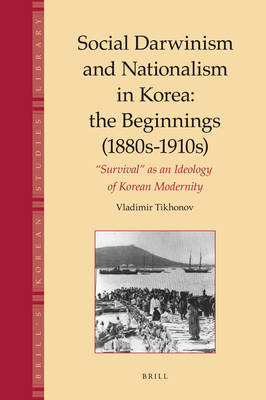
- Afhalen na 1 uur in een winkel met voorraad
- Gratis thuislevering in België vanaf € 30
- Ruim aanbod met 7 miljoen producten
- Afhalen na 1 uur in een winkel met voorraad
- Gratis thuislevering in België vanaf € 30
- Ruim aanbod met 7 miljoen producten
Zoeken
Social Darwinism and Nationalism in Korea: The Beginnings (1880s-1910s)
Survival as an Ideology of Korean Modernity
Vladimir Tikhonov
€ 228,95
+ 457 punten
Omschrijving
The book deals with the influences Social Darwinism exerted upon Korea's modern ideologies in their formative period - especially nationalism - after its introduction to Korea in 1883 and before Korea's annexation by Japan in 1910. It shows that the belief in the "survival of the fittest" as the overarching cosmic and social principle constituted the main underpinning for the modernity discourses in Korea in the 1890s-1900s. Unlike the dominant ideology of traditional Korea, Neo-Confucianism, which was largely promoted by the scholar-official elite, Social Darwinism appealed to the modern intellectuals, but also to the entrepreneurs, providing the justification for their profit-seeking activities as part of the "national survival" project. As an ideology of Korea's nascent capitalism, Social Darwinism in Korea could, however, hardly be called a liberal creed: it clearly prioritized "national survival" over individual rights and interests.
Specificaties
Betrokkenen
- Auteur(s):
- Uitgeverij:
Inhoud
- Aantal bladzijden:
- 268
- Taal:
- Engels
- Reeks:
- Reeksnummer:
- nr. 2
Eigenschappen
- Productcode (EAN):
- 9789004185036
- Verschijningsdatum:
- 14/07/2010
- Uitvoering:
- Hardcover
- Formaat:
- Genaaid
- Afmetingen:
- 163 mm x 241 mm
- Gewicht:
- 498 g

Alleen bij Standaard Boekhandel
+ 457 punten op je klantenkaart van Standaard Boekhandel
Beoordelingen
We publiceren alleen reviews die voldoen aan de voorwaarden voor reviews. Bekijk onze voorwaarden voor reviews.








